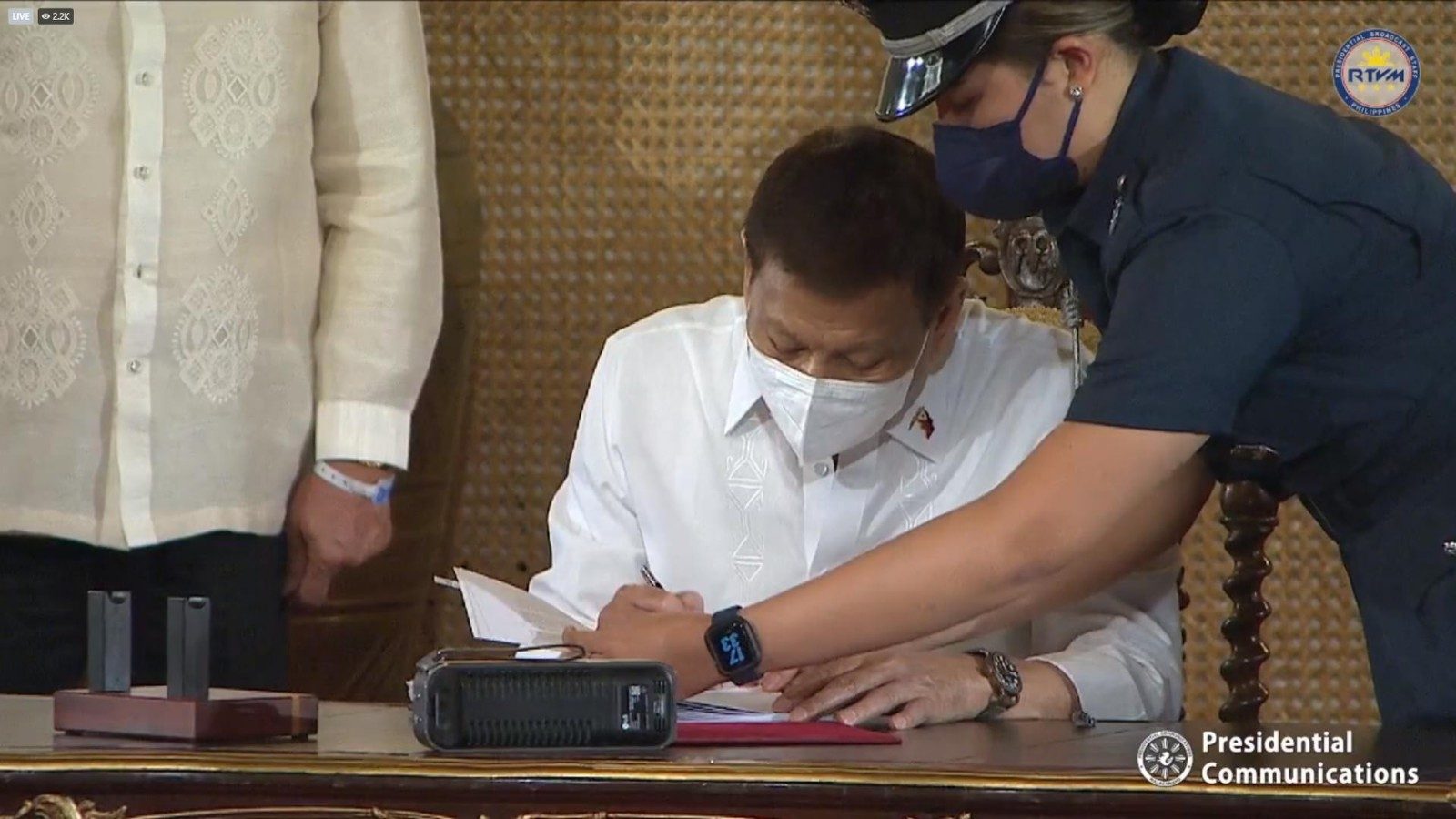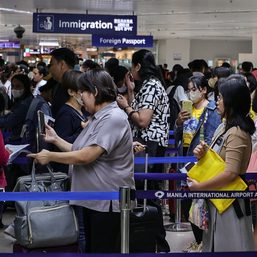SUMMARY
This is AI generated summarization, which may have errors. For context, always refer to the full article.

MANILA, Philippines – President Rodrigo Duterte solidified his economic managers’ liberal agenda of further opening up the Philippine economy to foreigners without amending the Constitution.
Duterte on Monday, March 21, signed the law amending the Public Service Act, allowing foreigners to fully own companies in the telecommunication, shipping, airline, railway, toll road, and transport network vehicle industries. Previously, these industries had a 40% cap on foreign equity, as they were considered public utilities.
Companies involved in power, water, and petroleum pipelines, public utility vehicles, and seaports continue to have foreign equity restrictions and are considered public utilities.
The economic team had pushed aggressively for amending the 85-year-old Commonwealth Act No. 146, citing the need to make the country more competitive amid the economic downturn due to the COVID-19 pandemic.
Socioeconomic Planning Secretary Karl Chua earlier said foreign investors “react favorably to a more liberalized regime.”
Critics and opposition lawmakers attempted to block the amendments, as a more liberal regime would open up the country to foreign abuse and security threats. Lawmakers who pushed for the measure said there are safeguards in place in the amendments.
The amendments in the Public Service Act complement other laws which effectively minimized protectionist and nationalist measures.
Last January, Duterte amended the Retail Trade Liberalization Act, which reduced the required capital for foreign retailers to P25 million from around P125 million.
Earlier this March, Duterte signed into law the amendments to the Foreign Investments Act, allowing foreigners to fully own businesses, including small and medium enterprises, except for sensitive industries like defense.
Lauded
The American Chamber of Commerce of the Philippines (AmCham) applauded Duterte’s signing of the law amending the Public Service Act, noting that it would “match policies that Singapore, Thailand, and Vietnam already have in place.”
“AmCham is confident that its signing, along with other recent investment liberalization bills – the Retail Trade Liberalization Act and the Foreign Investments Act – will significantly help the Philippines compete with its regional neighbors in bringing in investments to the Philippines. It will also be extremely helpful to the long-run recovery of the economy after the pandemic.”
Meanwhile, the Foundation for Economic Freedom (FEF) said the law would bring “huge benefits for business and individual consumers alike, with the entry of more investors in the telecommunications and transport industries offering a wider choice at different price points.”
FEF also emphasized that there are provisions to protect the Philippines from cyber threats and domination of foreign interests. These include vetting of potential investments in critical infrastructure and a requirement for an ISO certification for information security for telecommunication investors.
“The amended law likewise protects consumer welfare by increasing the penalties for erring companies engaged in public services. It also provides protection for small operators in the transportation industry by retaining the 60/40 restriction for public utility vehicles such as tricycles and jeepneys,” FEF said.
Meanwhile, Kabataan Representative Sarah Elago maintained her opposition to Duterte’s liberal measures.
“Kabataan Partylist is one of the 43 members of the House of Representatives who voted no to HB (House Bill) 78, amending the Public Service Act, and allowing 100% foreign ownership in power, transport, and communications sectors. 136 members voted yes and 1 abstained,” Elago tweeted. – Rappler.com
Add a comment
How does this make you feel?









![[Under 3 Minutes] When will we see modern jeepneys on the road?](https://www.rappler.com/tachyon/2024/04/francisco-motors-modern-jeepney-prototype-1.jpg?resize=257%2C257&crop=590px%2C0px%2C1012px%2C1012px)
![[OPINION] Rodrigo Duterte and his ‘unconditional love’ for China](https://www.rappler.com/tachyon/2024/04/rodrigo-duterte-xi-jinping-august-2019.jpeg?resize=257%2C257&crop=91px%2C0px%2C900px%2C900px)



![[The Slingshot] Lito Patay’s 4 hours and 38 minutes of infamy](https://www.rappler.com/tachyon/2024/07/Lito-Patay-4-hours-infamy-July-19-2024.jpg?resize=257%2C257&crop=233px%2C0px%2C720px%2C720px)





There are no comments yet. Add your comment to start the conversation.